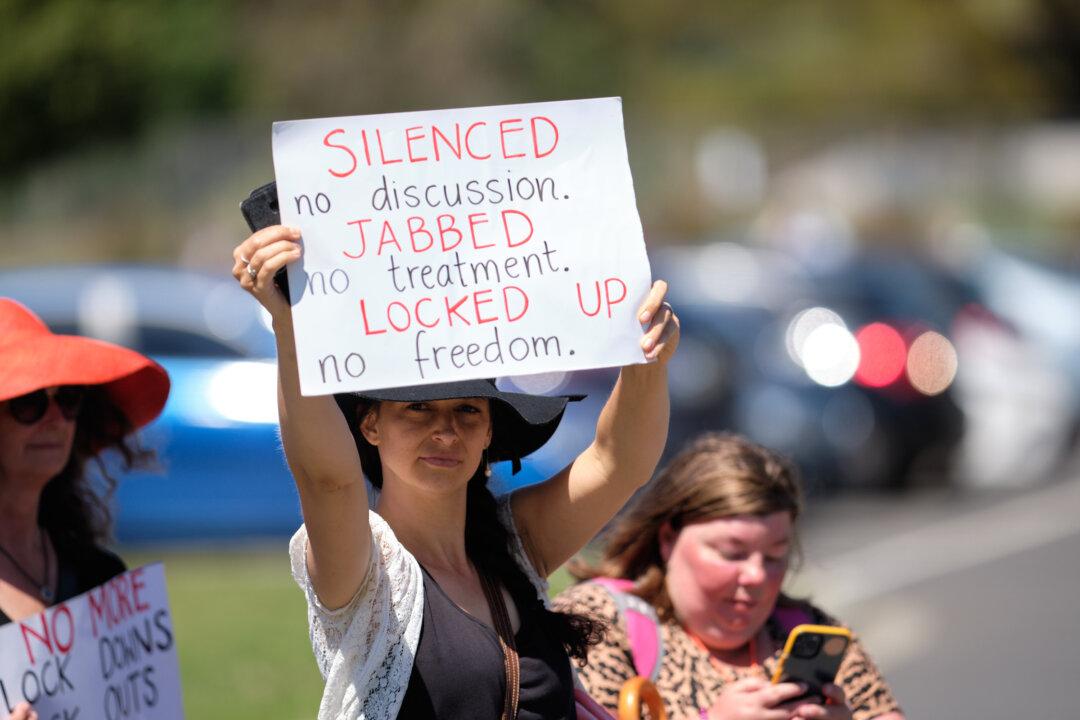Around 200 Australians have marched from Melbourne’s Footscray Park to the gates of the Flemington Racecourse during protests against the Victorian government’s handling of the COVID-19 pandemic.
The Melbourne Cup, a public holiday in the state of Victoria, was underway at the racecourse, which saw around ten thousand fully vaccinated punters join the festivities.





